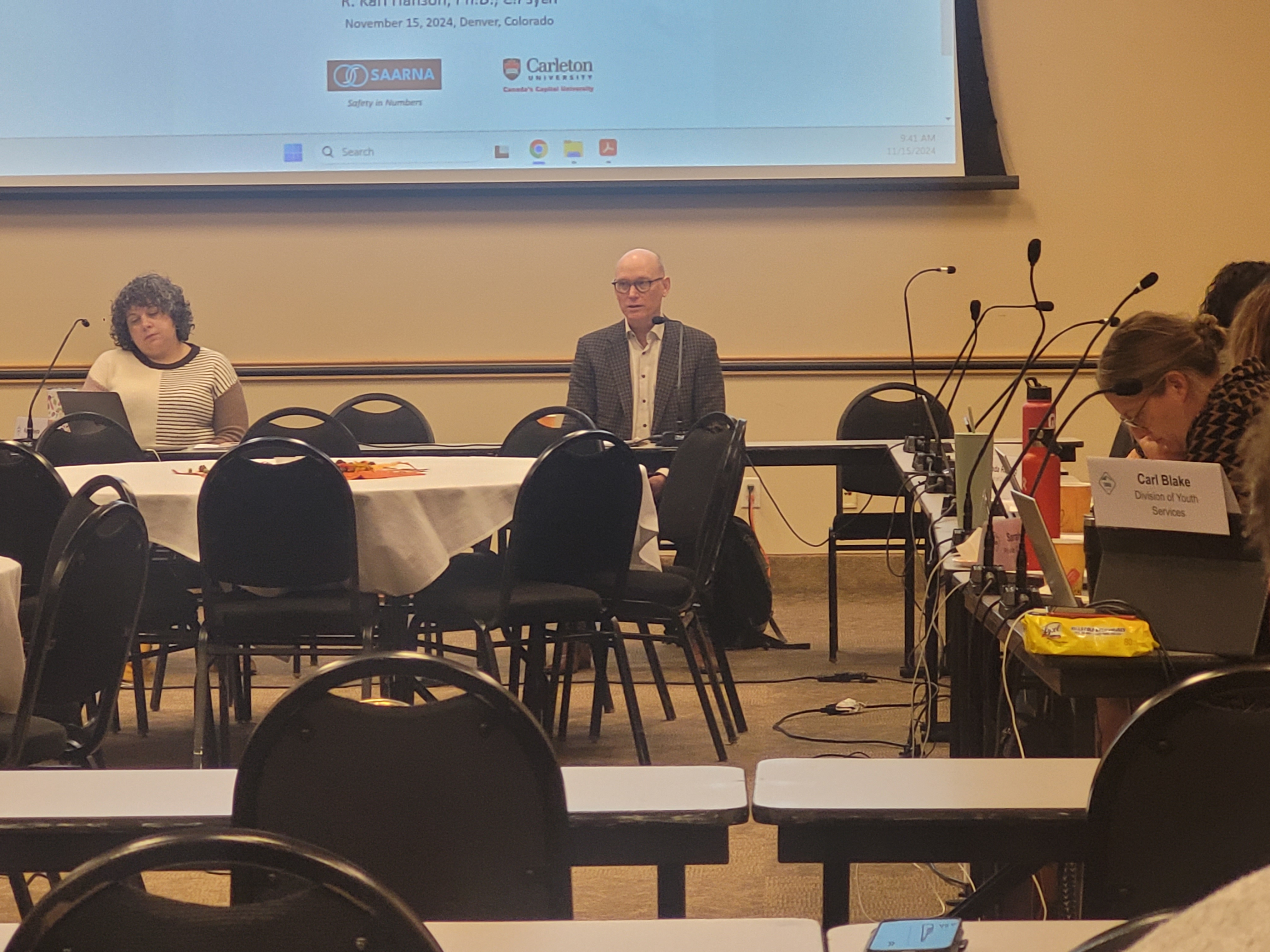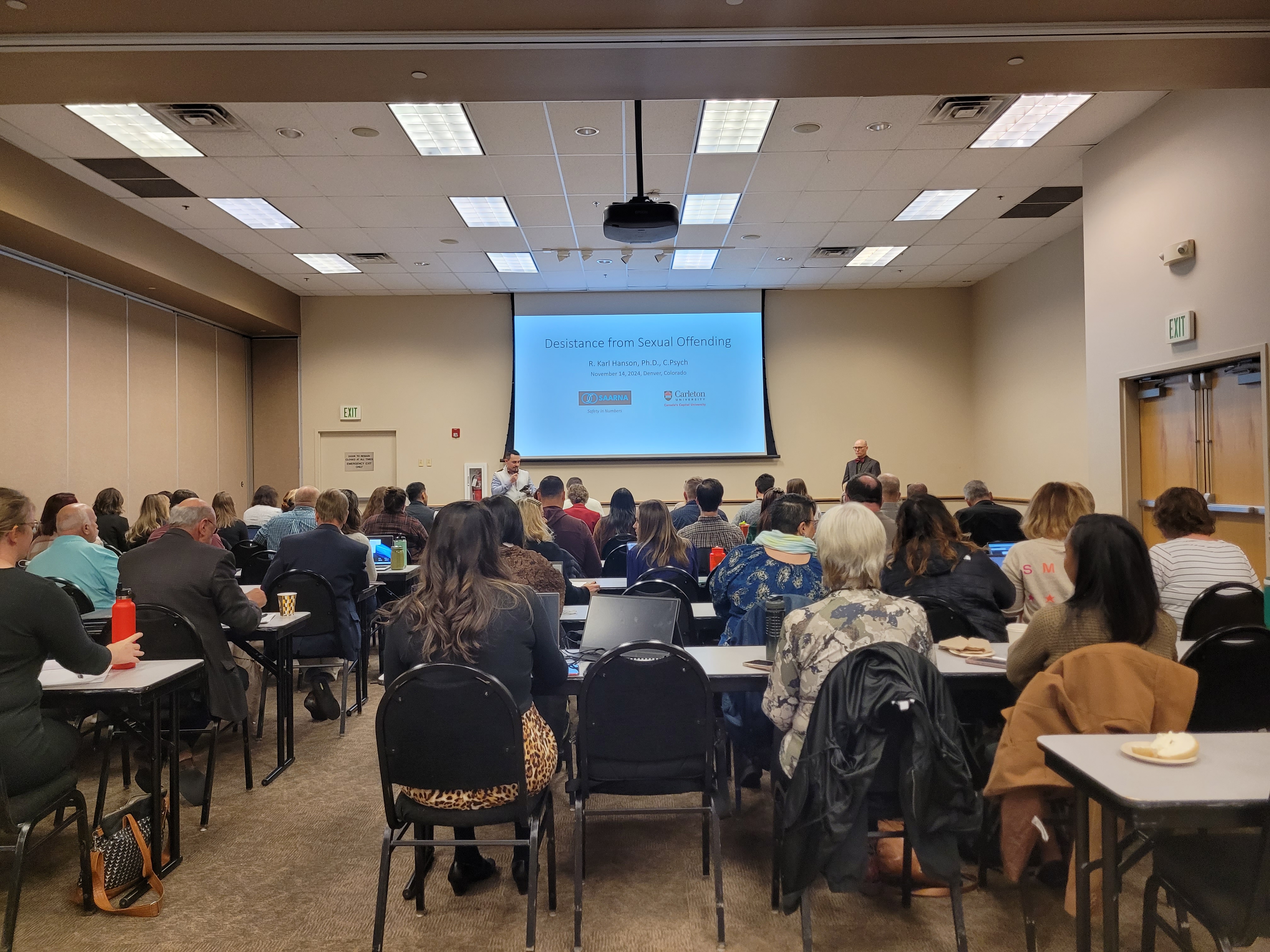The Division of Criminal Justice (DCJ) Office of Domestic Violence and Sex Offender Management plays a vital role in promoting public safety by equipping practitioners with the latest research and tools to address complex issues.
At the heart of ODVSOM’s work is the belief that public safety and offender accountability go hand in hand with evidence-based practices and opportunities for rehabilitation. Managing individuals with a history of sexual offending requires a nuanced approach that balances policy and risk management with fair and informed, evidence-based decision making.
On November 14-15, 2024, ODVSOM hosted a first-day training and a second day presentation to the Sex Offender Management Board (SOMB) focused on the desistance from sexual offending—a process that has significant implications for how risk is managed, resources are allocated, and communities are protected. Desistance is the transition to forms of psychological and community adjustment in which future offending is very unlikely.
The training was a direct response to the growing need for advanced tools and insights to address this complex issue. With communities increasingly demanding justice systems that are both effective and equitable, ODVSOM recognized the importance of bringing cutting-edge research to the professionals who implement these systems daily.
Dr. R. Karl Hanson, a globally recognized authority on risk assessment and offender management, led the one-day training for practitioners and also presented to the Sex Offender Management Board.
 Dr. Hanson shared recent findings about evaluating change in the community, the effectiveness of psychological interventions, and the importance of time offense-free as a predictor of desistance. These insights give attendees the knowledge and the ability to assess not only current risks but also the trajectory of change over time.
Dr. Hanson shared recent findings about evaluating change in the community, the effectiveness of psychological interventions, and the importance of time offense-free as a predictor of desistance. These insights give attendees the knowledge and the ability to assess not only current risks but also the trajectory of change over time.
Topics included:
- How desistance is assessed in the community.
- The effectiveness of psychological interventions based on recent meta-analyses.
- Factors that help individuals transition to desistance.
- The role of time offense-free in reducing risk.
Attendees were empowered with practical hands-on training and guidance utilizing the software called Time Free Calculator, giving practitioners a better understanding and use of data and guidance on how to incorporate it with report findings.
This training provided theoretical foundation and practical skills for assessing and communicating the risk of sexual reoffending. Participants walked away with a deeper understanding of how desistance occurs and how to estimate risks effectively, tailored to real-world applications. By combining research, practical applications, and advanced tools, these trainings help ensure that risk management strategies are not only effective but also balanced and fair, ultimately contributing to a safer, more resilient community.
This training is more than just a workshop—it’s a step toward transforming how Colorado approaches justice and safety. It reflects DCJ’s commitment to providing the knowledge and tools needed to foster a justice system that is fair, informed, and responsive to the needs of all Coloradans.
By continually hosting workshops and training similar to this, ODVSOM underscores its role as a leader in innovation, collaboration, and the pursuit of safer, more resilient communities. This training is just one example of how evidence-based practices can create meaningful change, not only for individuals but for entire communities.
To learn more about upcoming workshops, visit ODVSOM’s training resources.
